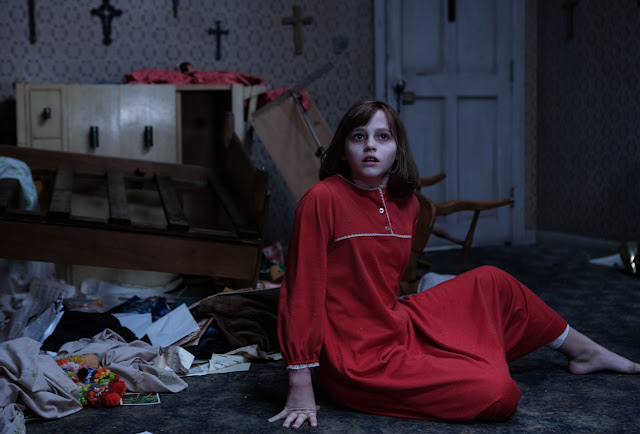“A poetic yet murky rendering of a real-life murder case.”
The 2007 Amanda Knox murder case is the material of British
director Michael Winterbottom’s meta-fiction The Face of an Angel. Along with Rudy Guede and her Italian
boyfriend Raffaele Sollecito, Knox underwent a grueling trial for the murder
of Meredith Ketcher, a British exchange student who shared the apartment with
her. Due to circumstantial evidence, she and Sollecito were found to be
innocent of involvement in the murder while Guede served a 16-year sentence.
Taking inspiration from the book “Angel Face,” American
expat journalist Barlie Latza Nadeau’s account of the case, Winterbottom
avoided re-enacting the events. Instead, he focused more on the aftermaths of
the murder, particularly on how media feasted on it. Using fictionalized
characters, The Face of an Angel revolves
mainly on how the case affected a filmmaker disturbed by his own demons.
Once an acclaimed filmmaker, Thomas (Daniel Bruhl) is ready
to return with a movie about a recent murder case in Siena, Italy. American
student Jessica Fuller (Genevieve Gaunt) has been accused of killing her
roommate, British student Elizabeth Pryce (Sai Bennett). Researching for
materials, Thomas travels to Italy and meets Simone Ford (Kate Beckinsale). A
contributor to “The Daily Beast,” Simone has been on the “warfront” for far too
long, and like other media men, she has acquired substantial knowledge about
the case.
Confused with the conflicting “truths,” Thomas finds himself
in a dilemma on how to write the film’s script. Aside from the pressures from
his British-based producer, he is also coming to terms with his failing
marriage as his wife left him for her co-star. Occasionally, he turns to drugs
but there is no relief to his depressions as he experiences nightmares and
hallucinations.
His stay in Siena leads to a chance encounter with Melanie
(Cara Delevingne), a beautiful British student-abroad who also works at night
as a bartender. Enlisting her assistance to explore the city, Thomas strikes friendship
with her and consequently, Melanie’s lively charm and young wits help him in writing the
perfect material for his film.
Fast-paced and complex, The
Face of an Angel is giftedly structured, much like Dante’s Divine Comedy
which is alluded by Thomas in the film. Much like in the Italian’s epic poem, Thomas undergoes his own phase of inferno, purgatorio and paradiso. It was hell
in the beginning as Thomas sees the media frenzy about the trial, some
believing Fuller’s innocence while others flame suspensions. Then there was a
period of self-searching while he forms a platonic relationship with Melanie.
In the end, Thomas finds peace as finally learns to grapple the things that
haunt him.
“I want to make a film about love,” Thomas said. Indeed, he
forgoes the violence of crime thrillers and instead, he puts tender voices to
two young lives, one was ended immediately while the other still wishes to grow
old and enjoy the gifts of life. It was touching and in the process, his
writings echo his own heart.
At that point, the film shifts focus and becomes more
self-reflective with Thomas’ inner struggles. This is where the film gets muddy,
unsure what places to go to. It is unclear where Thomas’ poetic script leads
to. But there seems a relief when a call came to inform him that his film had
been dropped. While out touring with Melanie, Thomas still sorts out what his
feelings for his ex-wife and for Melanie, and the film ends with no closure for
him and the two women.
While Beckinsale plays a typical energetic news
correspondent, Bruhl looks drab and lonely throughout. It is Delevingne who
stole the show. She has a mesmerizing face with an enigmatic presence and
bubbly personality to back it up. She brings extra flare of excitement in the
film. It’s a wonder whether the titular “face of an angel” really refers to the
innocent-faced accused Fuller or to Delevingne’s character Melanie who, like an
angel, brought light to the gloomy man.
The Face of an Angel is an evocative poetry of
how death pushes man to embrace life and love. But like a poem, it takes a different wavelength to grasp what the movie really wants to tell.



























0 comments:
Post a Comment